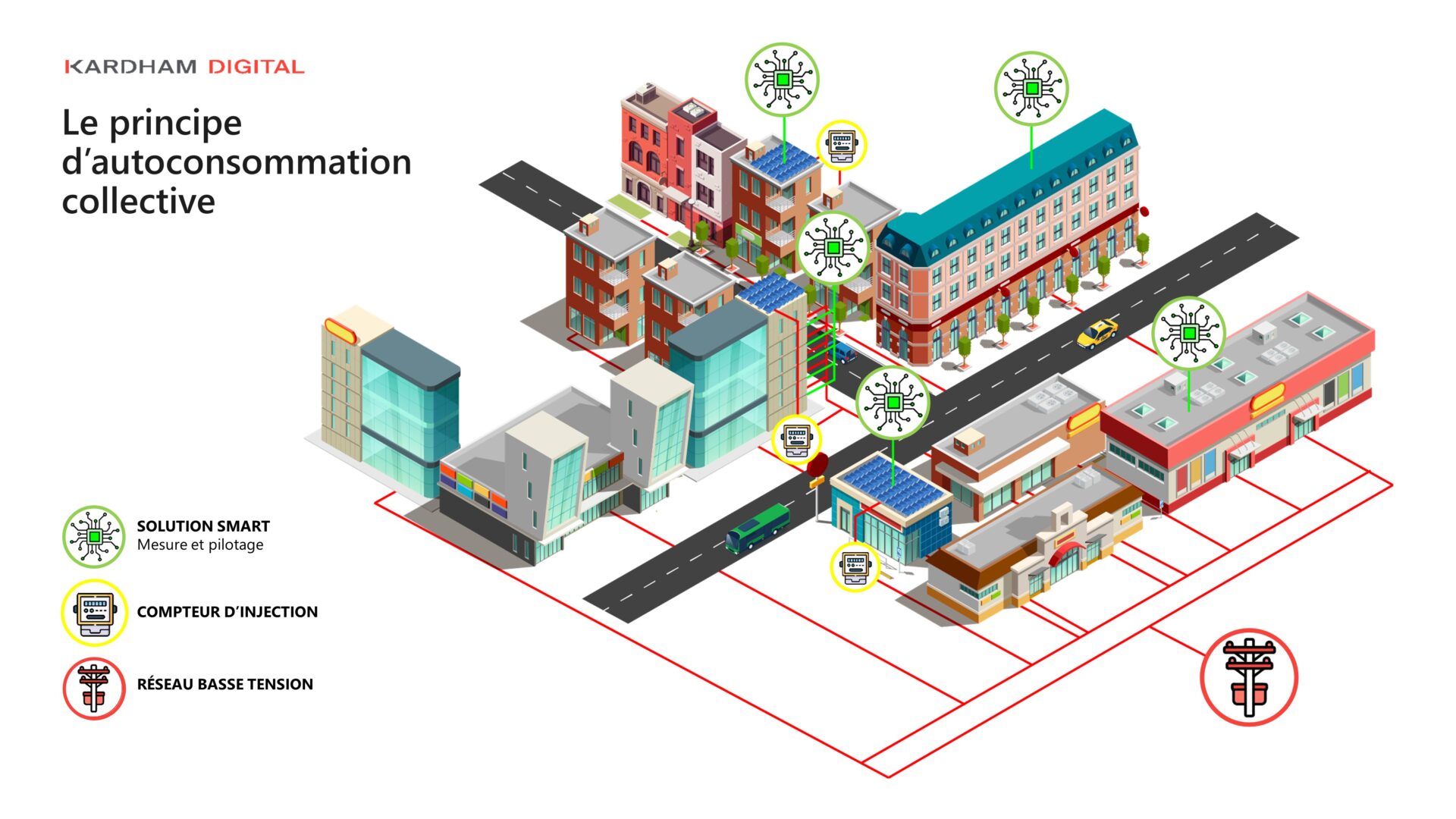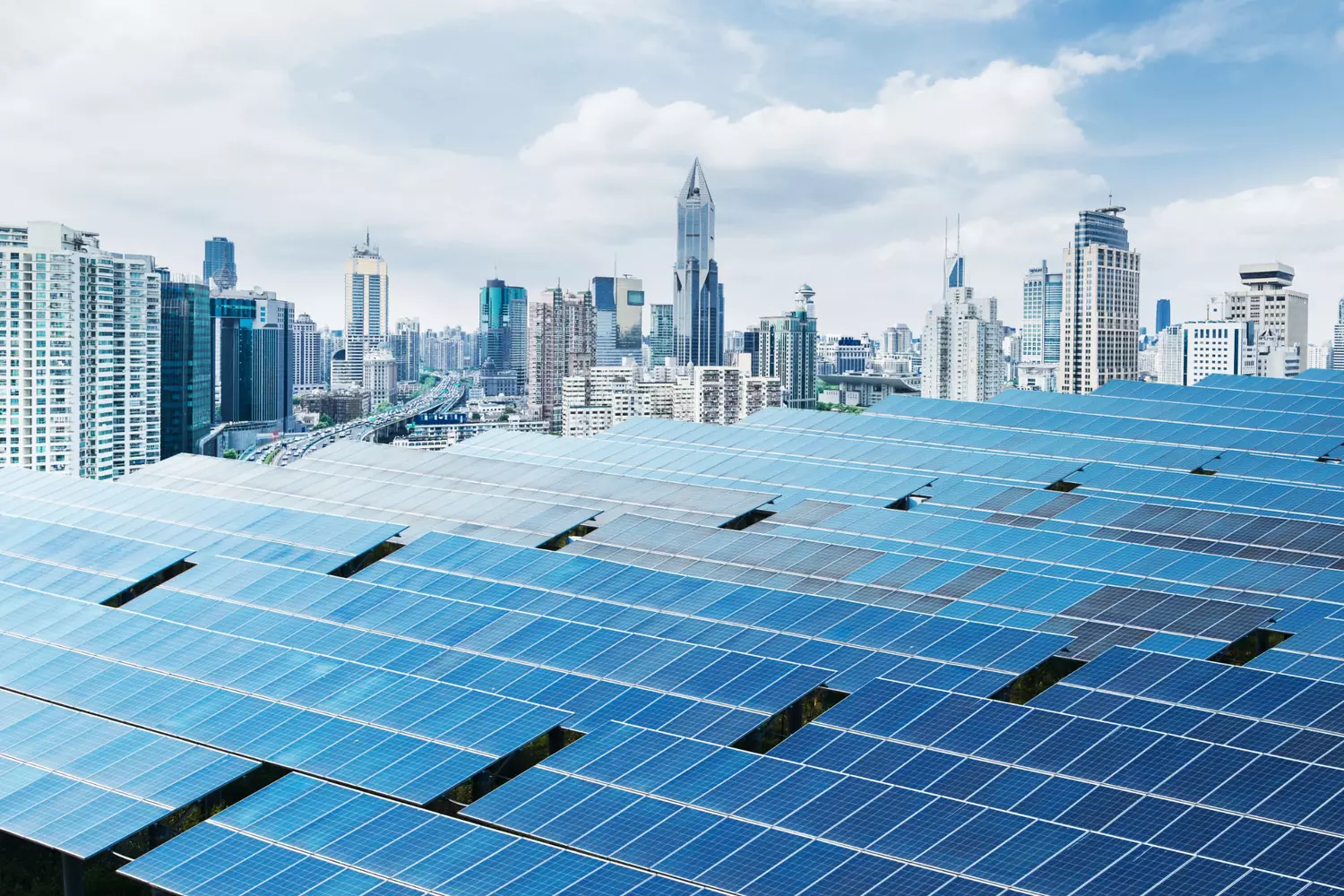Article published on January 8, 2024 on Journal du Net.
In the case of collective self-consumption, the IoT must be used both to control consumption and to balance the power between buildings.
The popularity of self-consumption of photovoltaic energy is not waning; on the contrary, it is being extended to cover several buildings. This is known as collective self-consumption (CSC). Encouraged by the regulations, different buildings can group together within a radius of 2 kilometres, 10 in rural areas, to share the energy produced locally. An organising legal entity (PMO) must manage the legal, organisational and functional aspects of the network created. “Energy is the second biggest cost item for businesses, so it has become a sensitive issue, and self-consumption is attracting more and more interest, especially as it helps to decarbonise the business,” confirms Jean-Marc Vauguier, Chairman of Z#bre, a French company that digitalises workspaces. But for this to work, we need to determine which equipment in which building needs it most, and when. This is where IoT technology comes into its own. It therefore faces two challenges.
The first challenge is managing consumption. “The aim of a self-consumption approach is to reduce energy bills. The cheapest energy is the energy we don’t consume, so connected objects should initially be used to optimise consumption in order to eliminate it, and to measure the consumption to which renewable energies will be allocated,” explains Alexandre Fund, smart building director at ESN Kardham Digital, who asserts that managing consumption can lead to energy savings of up to 30%.
The second aspect addressed by the IoT in collective self-consumption is the balancing of consumption between participants. “It’s better to create a PMO between complementary buildings, for example between a school, shops and homes. But it’s also better to have the land available to add a wind turbine,” says Alexandre Joly, head of the energy division at the Carbone 4 consultancy. The data supplied by the connected objects will then be used to determine, via an energy management platform or a building operating system (BOS), which energy to allocate to which building. According to Alexandre Fund, balancing the energy consumption of different buildings adds a further 10% to 25% to the savings achieved by managing consumption, resulting in an overall reduction in consumption of more than 50%.
To meet the needs of businesses, ESN Kardham Digital and renewable energy consultancy Wise-NRJ have joined forces to provide a dedicated offering for collective self-consumption. An initial trial is under way in Sassenage, in the Isère region, with a PMO comprising a restaurant, a hotel, a garage and a printer, all of which have been equipped with photovoltaic panels since last October and will be sharing between them this winter the power generated by solar energy, ranging from 200 to 500 kilowatts peak.
“The initiative was prompted by the hotelier, which has seen its energy bill soar from €30,000 to €100,000 a year. Heating, ventilation and air conditioning can be controlled by IoT depending on the occupancy of the premises. The project will use our building operating system to shift consumption periods to align them with production periods, adjusting consumption to the most attractive tariff periods. The hotel’s surplus energy will be offered to the collective, which in turn will be able to offer energy when the hotel runs out”, explains Alexandre Fund, who assures customers of a ROI in less than five years. “With collective self-consumption, for which we provide the energy production circuit for an area, we are extending our experience from the tertiary sector to the smart city”, says Pascal Zératès, CEO of Kardham Digital, with satisfaction.
For the time being, collective self-consumption remains marginal in France, “which currently has 200 PMOs”, explains Gwénaëlle Carfantan, president and founder of Urban Think. The number could grow rapidly, as collective self-consumption is a key focus for social landlords. “We’re seeing more and more POCs being set up to find out how to channel the electrons correctly – it’s the big trend in the market,” says Thomas Moulia, co-founder of French green tech company Inicio, who expects to see an increase in ACC projects over the next three years.
Célia Garcia-Montero

